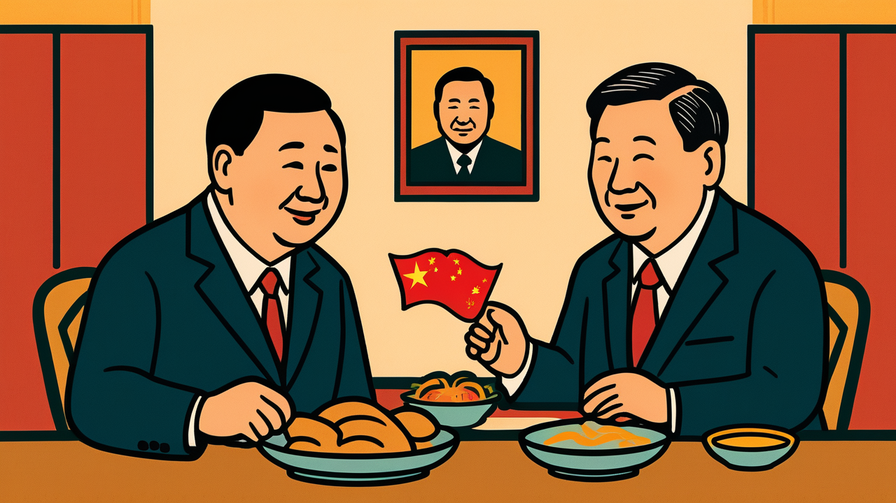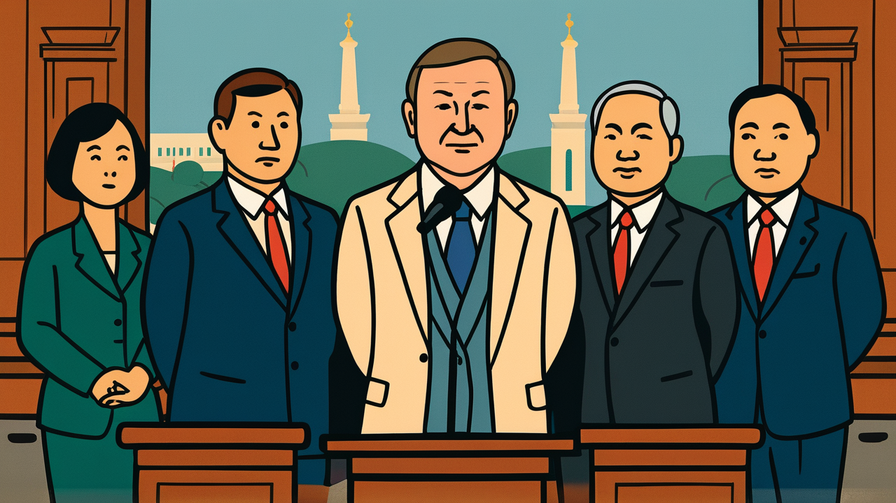[Disclaimer] This article is reconstructed based on information from external sources. Please verify the original source before referring to this content.
News Summary
The following content was published online. A translated summary is presented below. See the source for details.
Prime Minister Anthony Albanese gave a revealing interview to ABC’s Sarah Ferguson, discussing his recent China trip and domestic priorities as Parliament resumes with Labor’s increased majority. He described an unusual “personal” lunch with President Xi Jinping lasting over an hour, where they discussed backgrounds and family histories rather than policy, building what he called “a moment of trust.” Albanese defended engaging with China as Australia’s largest trading partner, worth more than the next four countries combined. On domestic issues, he outlined ambitious plans including a 20% reduction in student debt, childcare safety reforms following recent scandals, and protection of penalty rates for workers. The PM acknowledged the government’s responsibility in the childcare crisis, admitting “governments have not done well enough.” He announced $14 million in funding to address South Australia’s algal bloom crisis. Albanese firmly rejected changes to GST despite pressure to raise revenue, citing cost-of-living concerns. The interview concluded with discussion of former Labor leader Mark Latham’s portrait in Parliament, with Albanese revealing the party had added language noting Latham’s expulsion for views incompatible with Labor values.
Source: Australian PM Media Centre
Our Commentary
Background and Context

This interview gives us a rare glimpse into how world leaders actually interact. When Prime Minister Albanese talks about his “personal” meeting with Xi Jinping, it shows diplomacy isn’t just about formal meetings – sometimes progress happens over lunch when leaders talk as people, not just politicians.
The timing is significant. Labor just won a bigger majority in Parliament, giving them more power to pass laws. Meanwhile, Australia walks a tightrope between its biggest trading partner (China) and closest security ally (the United States). Every word and gesture matters in this delicate balance.
Expert Analysis
Albanese’s approach to China is pragmatic. He knows one in four Australian jobs depends on trade, with China buying more Australian goods than the next four countries combined. But he also maintains Australia’s sovereignty, refusing to commit to hypothetical scenarios about Taiwan.
The domestic agenda reveals Labor’s priorities: helping young people with student debt, fixing the childcare crisis, and protecting workers’ wages. These aren’t random choices – they target key voter groups who supported Labor: students, working parents, and wage earners.
Additional Data and Fact Reinforcement
Key numbers from the interview that matter:
• 20% reduction in student debt – affecting millions of young Australians
• $14 million allocated for South Australia’s environmental crisis
• China trade worth more than the next 4 countries combined
• 95% of new childcare centers are privately owned
• PM has visited US 5 times, China only twice as leader
Related News
The childcare crisis mentioned involves recent scandals where children were mistreated in some centers. This has shaken parent confidence and prompted calls for stronger oversight. The algal bloom in South Australia is an environmental disaster affecting beaches and marine life, linked to climate change and water temperature rises.
The Taiwan question looms large. Strategic ambiguity – not saying whether Australia would defend Taiwan – has been policy for decades. But with US officials reportedly pressing for clarity, Australia faces increasing pressure to pick sides in any future conflict.
Summary

This interview reveals the complex balancing act of modern leadership. Albanese must maintain relationships with both China and the US while addressing pressing domestic issues like student debt and childcare safety. His “personal diplomacy” with Xi Jinping shows how international relations often depend on human connections, not just formal agreements. For young Australians, the promised student debt relief and focus on childcare quality directly impact their futures. The PM’s firm stance on sovereignty – making Australia’s own decisions – reflects a nation confident in navigating between superpowers while pursuing its own interests.
Public Reaction
The China meeting has divided opinion. Business groups praise improved trade relations, while security hawks worry about getting too close to Beijing. Students celebrate the debt relief announcement, while parents demand faster action on childcare safety. Opposition parties criticize the PM for not securing a meeting with President Trump while spending extensive time with Xi Jinping. The Mark Latham portrait controversy has reignited debates about how political parties handle controversial former leaders.
Frequently Asked Questions
Q: What does “strategic ambiguity” mean regarding Taiwan?
A: It means not clearly stating whether Australia would militarily defend Taiwan if China attacked. This uncertainty is meant to prevent conflict by keeping all sides guessing.
Q: Why is the GST change controversial?
A: GST is a tax on almost everything you buy. Raising it would make life more expensive for everyone, especially hurting low-income families during a cost-of-living crisis.
Q: Who is Mark Latham and why does his portrait matter?
A: He was a Labor Party leader in 2004 who later became extremely controversial, expressing views the party now rejects. The portrait debate shows how organizations handle problematic parts of their history.


